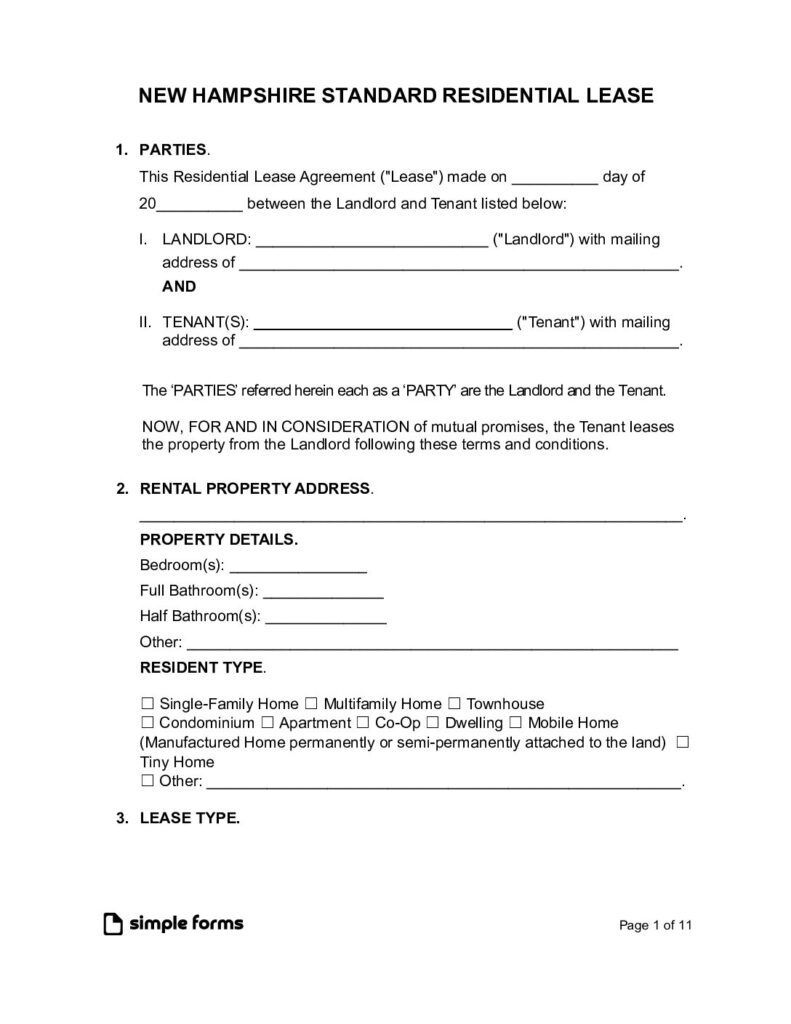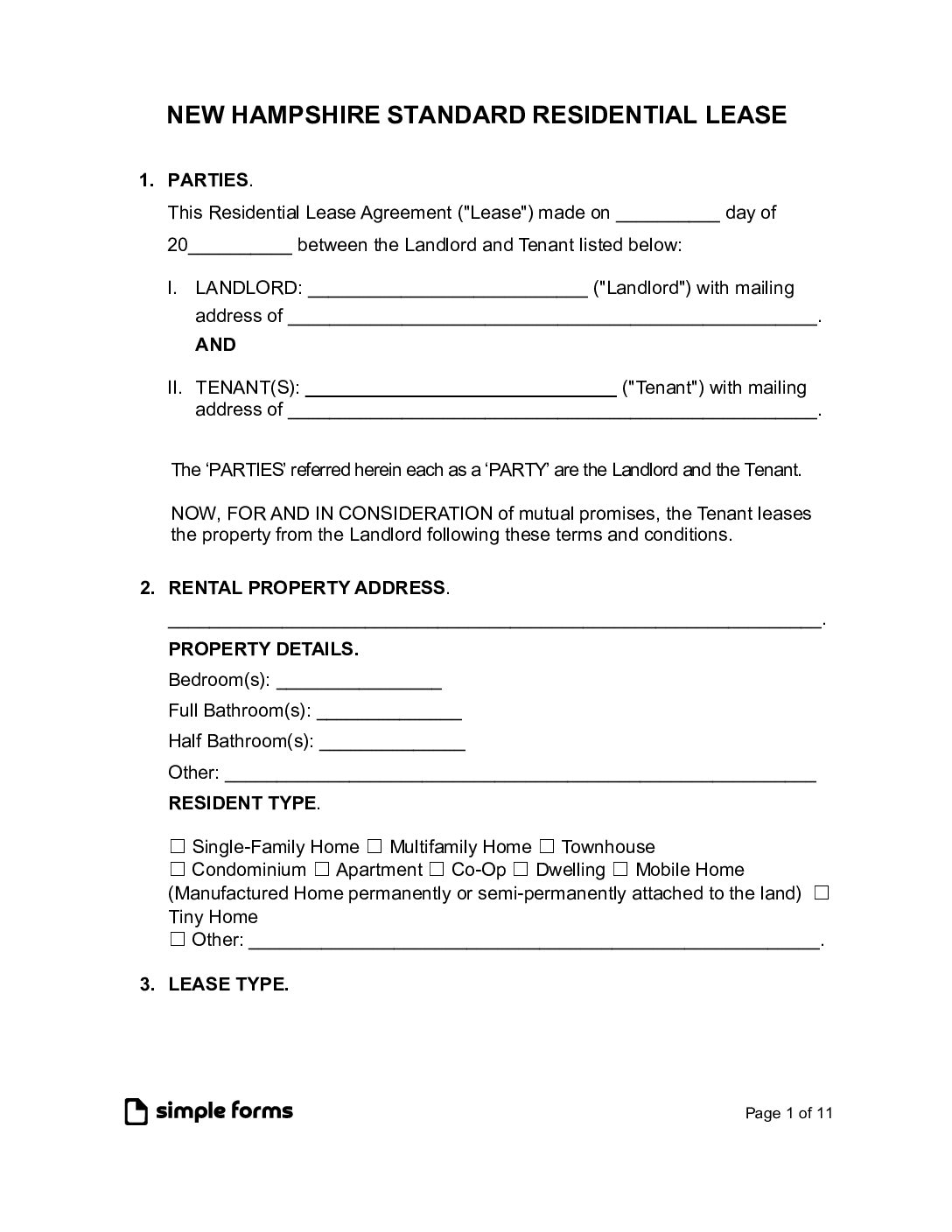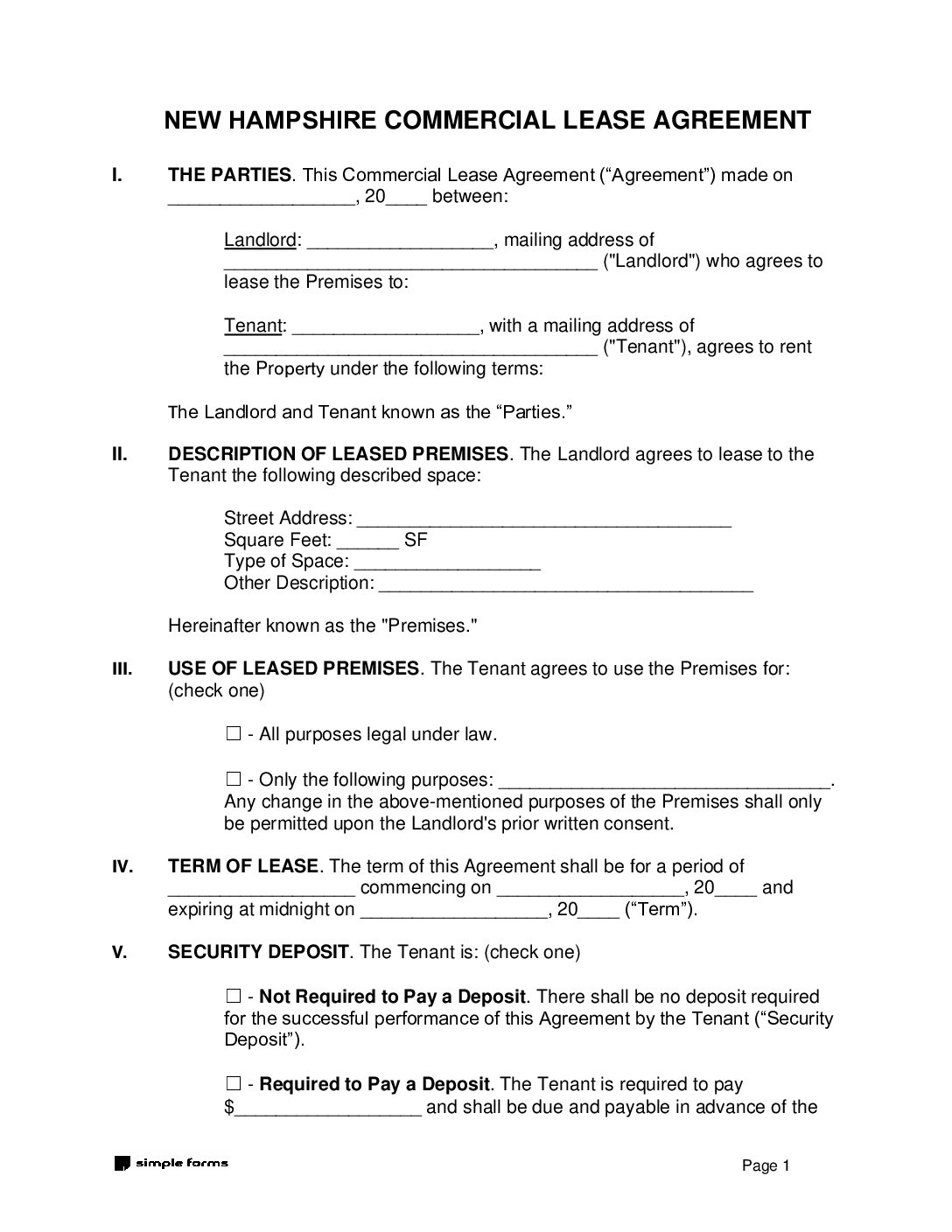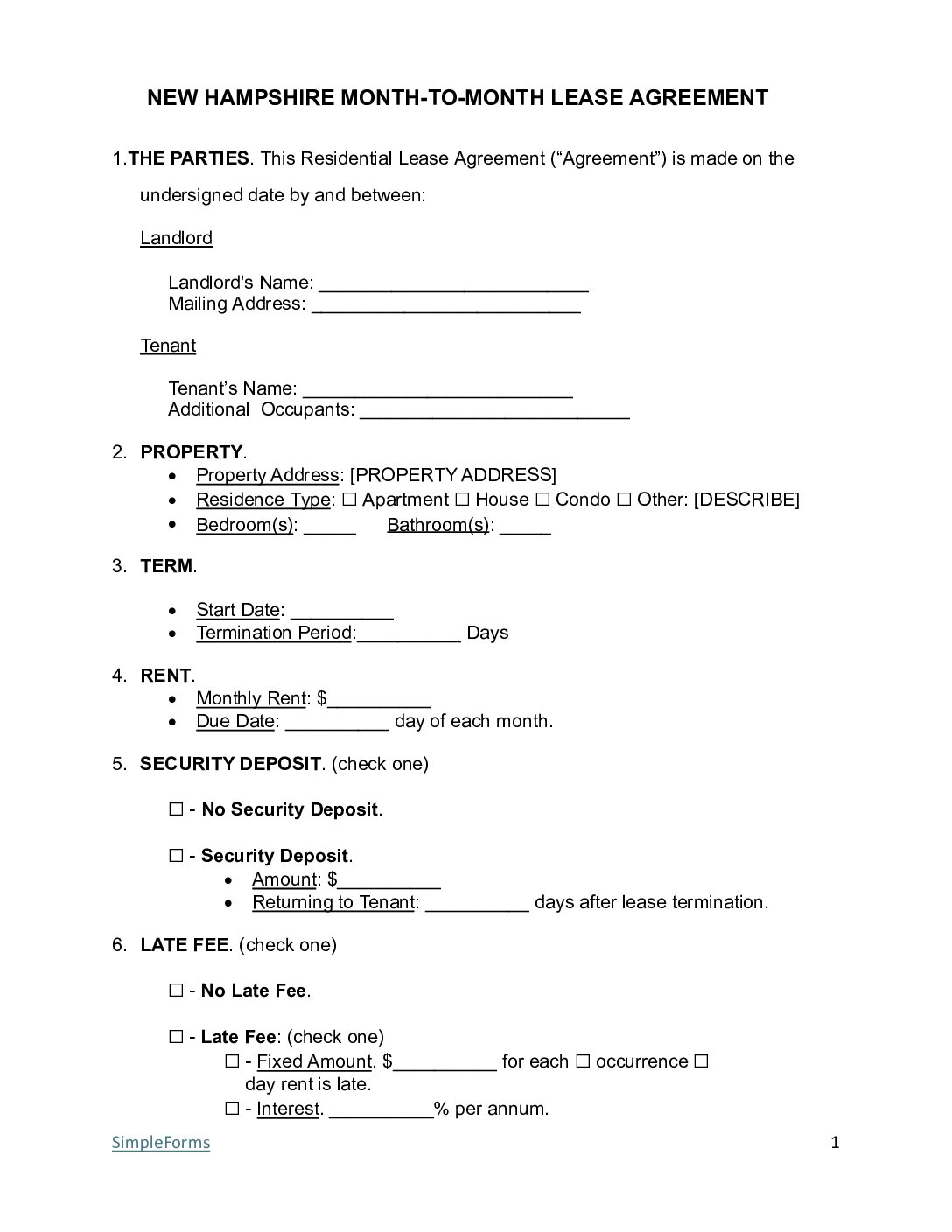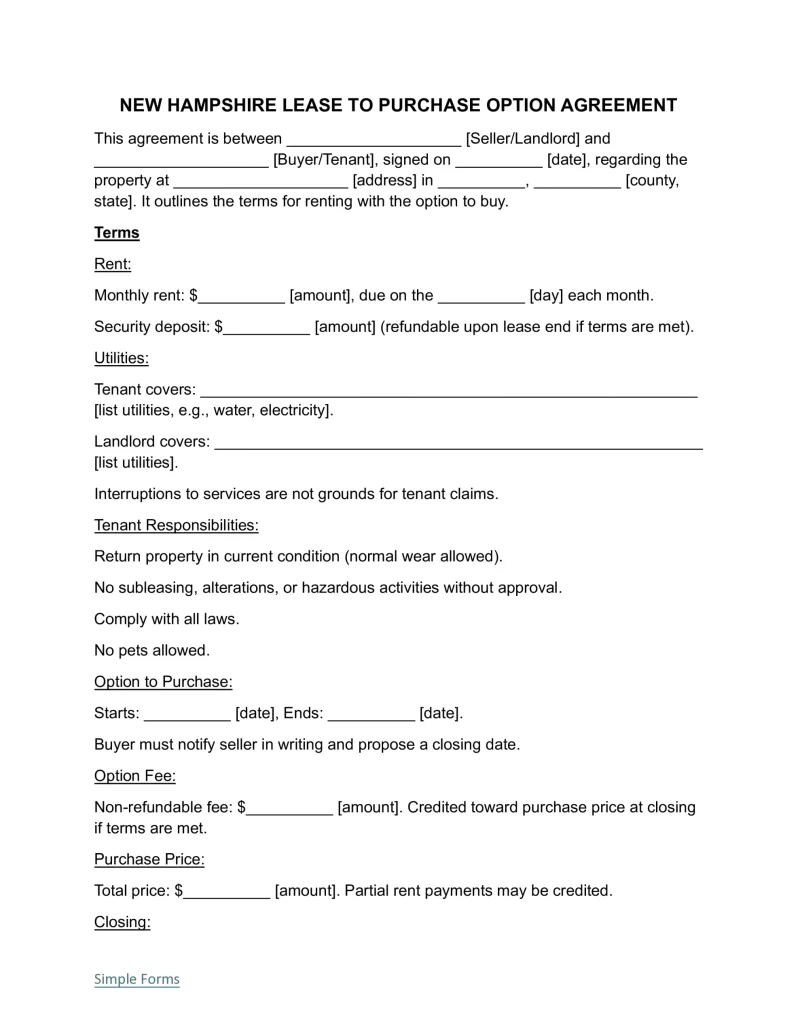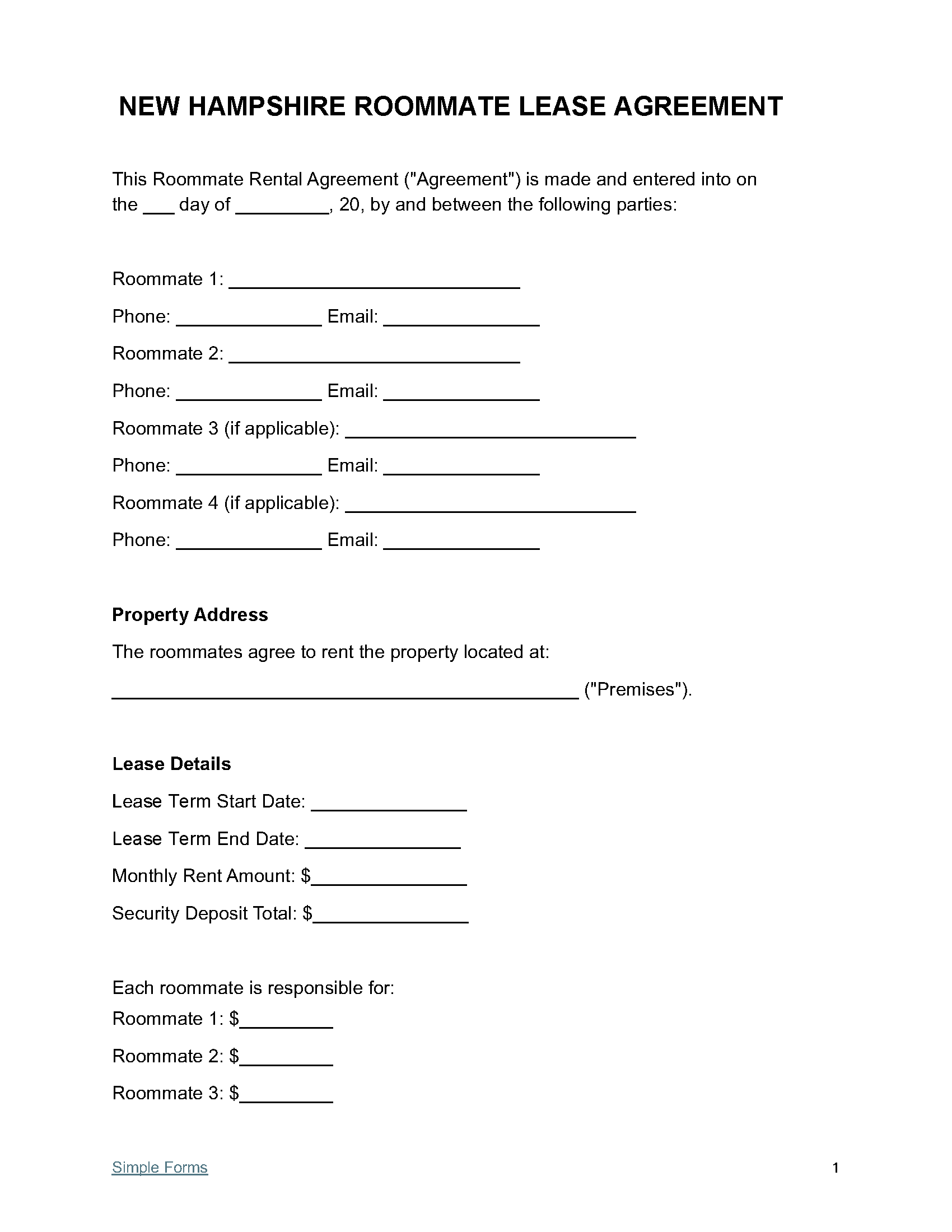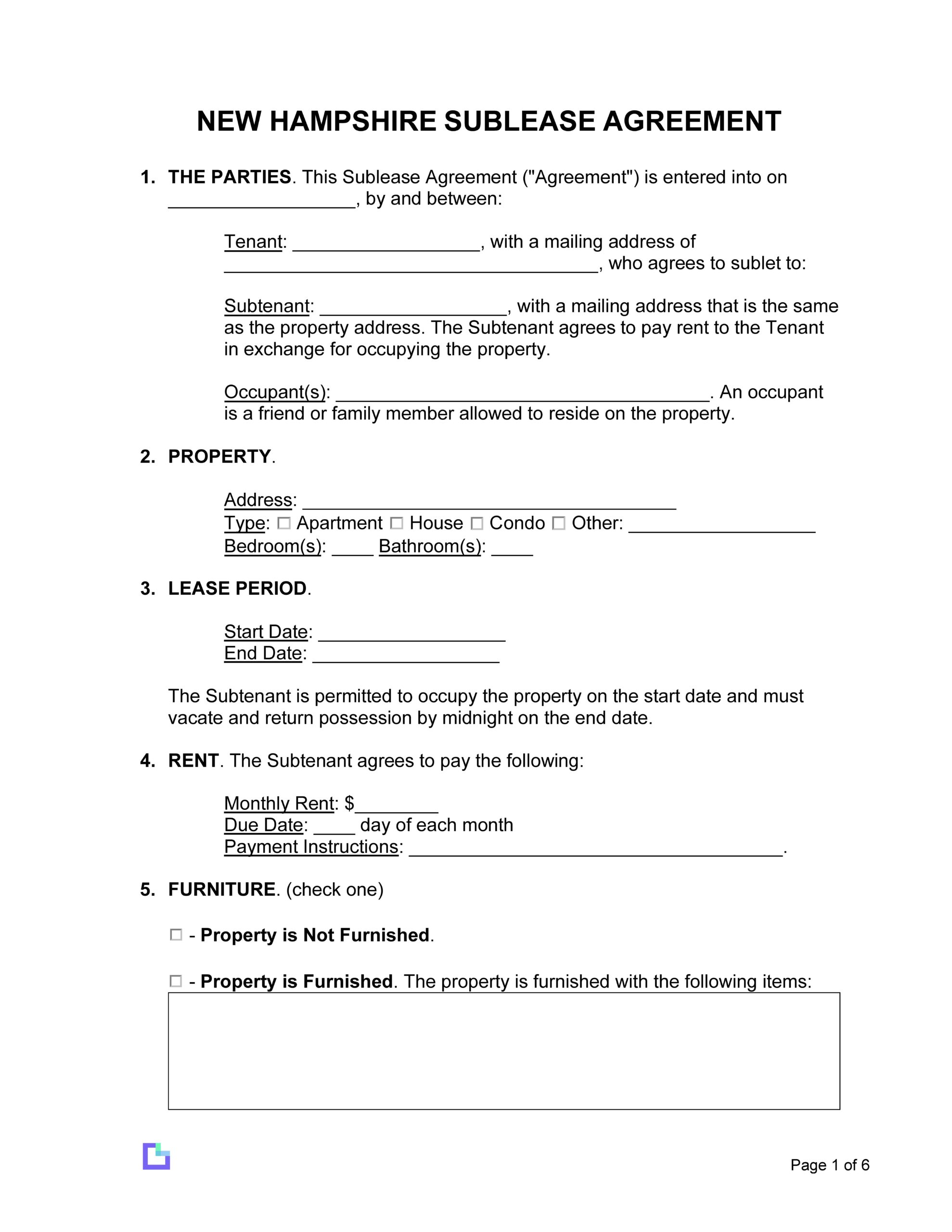By Type (6)
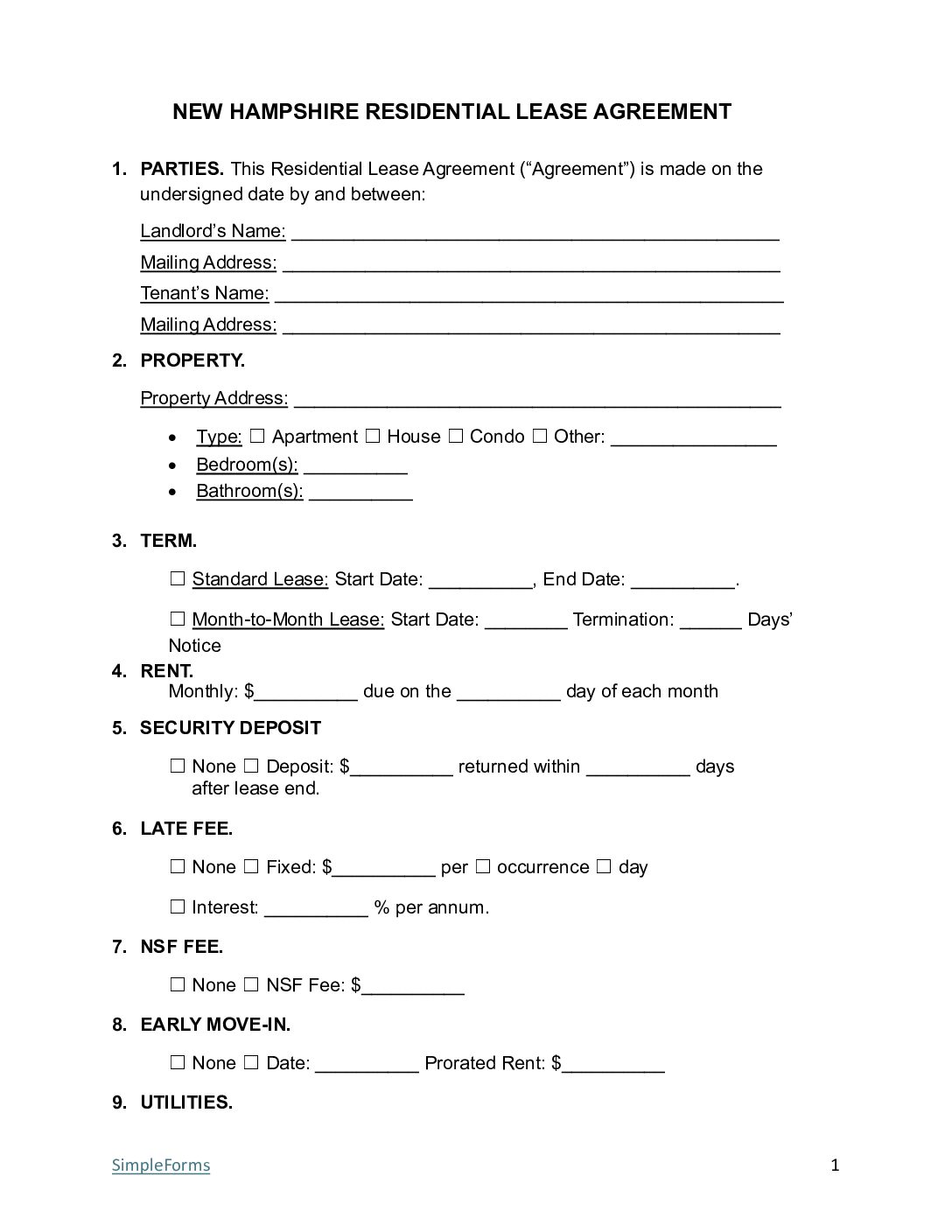 |
Residential Lease AgreementUsed between a Landlord and Tenant for a lease term of one year or more. |
Commercial Lease AgreementFor Business use only. |
|
Month-to-Month LeaseUsed for monthly rentals. |
|
Rent-to-Own Lease AgreementUsed for renters who wish to purchase the property at the end of the lease. |
|
Room Rental Lease AgreementUsed by Tenants who rent a room to a roommate. |
|
Sublease AgreementThis form is used to lease Tenants unit to a Sublessee. |
What does the form cover?
This New Hampshire rental Lease Agreement includes New Hampshire landlord-tenant laws:
- New Hampshire Residential Landlord-Tenant Laws
- Security Deposit Law
- Lease Termination
- Landlord’s Access to the Property
- Required Disclosure Forms
- Rent Due Date plus Late Fees
New Hampshire Residential Landlord-Tenant Laws
Security Deposit Law
Summary:
- 30 Days – Landlords must return the deposit to tenants within 30 days of lease termination.[2]
- Itemized List – Deductions must be itemized and shared with the tenant.
- Maximum – The security deposit cannot exceed one (1) month’s rent or $100 (pick the higher value).
Lease Termination
Summary: Both landlords and tenants can terminate a lease under certain conditions:
- Landlord’s Ability to Terminate
- 7-day notice for nonpayment of rent.
- 30-day notice for other violations.
- Tenant’s Ability to Terminate
- Tenants may terminate due to habitability issues after notifying the landlord.
- 30-day notice is required for month-to-month leases.[3]
Landlord’s Access to Property
Required Disclosure Forms (3)
- Lead-Based Paint Disclosure Form – Landlords must provide a brochure if the property was built before 1979.[5]
- Move-in Checklist – The landlord must notify the tenant to report any property issues upon moving in. The tenant has five (5) days to provide a list of repairs needed to avoid responsibility at the end of the lease.
- Methamphetamine Disclosure – Properties previously used to manufacture methamphetamines must be appropriately disclosed.
Paying Rent
- Grace Period – No grace periods in the state of New Hampshire.
- Maximum Late Fee – Landlords can charge any amount for late rent as New Hampshire has no laws governing late fees.
- NSF Fees – No laws mandating NSF fees in New Hampshire.[6]
